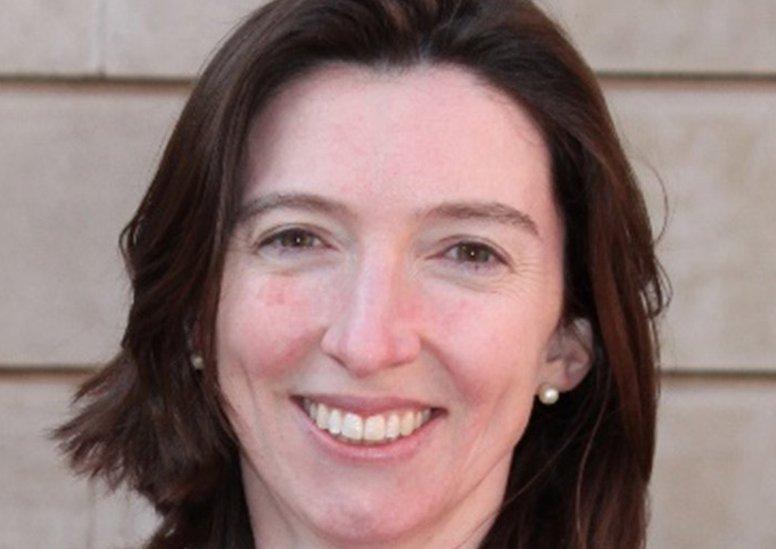UK 'must be clear-eyed' on China tech ambitions
- Published

Lindy Cameron said the UK was interested in China's future role in technology
The new head of the UK's cyber-security agency has said the country must be "clear-eyed" about the potential technological threat posed by China.
Lindy Cameron was making her first major speech as chief executive of the National Cyber Security Centre (NCSC) - part of GCHQ - at Queen's University.
Born in Northern Ireland, she was previously the director general of the Northern Ireland Office.
Ms Cameron warned that Russia "poses the most acute and immediate threat".
However, she said China's size, scale and technological ambition was also being watched by the UK.
She said the two countries were among four nations of particular concern in the cyberspace, alongside North Korea and Iran.
'Change the world'
Ms Cameron said the UK was "most interested" in China's future role in technology and their presence in the market, as much as any potential threat.
"China will change the world we live in in a much more fundamental way than Russia will and I think that just by virtue of the size and scale of the market that they have domestically, and indeed the innovation that is happening in China in terms of technology," she said.

Lindy Cameron previously served at the director general of the Northern Ireland Office, making her its second most senior civil servant

She said customers in the UK would be buying technology produced in China, and there was an interest in how secure it was from a cyber-security perspective.
The "changing nature of China" would be "one of the most significant geopolitical shifts that we will see in this decade", she added.
Combating threats
Five years since the NCSC was announced, it has dealt with more than 2,000 significant incidents from across the globe, ranging from covert state-sponsored attacks, to criminal ones with major public impact, Ms Cameron said.
More than 5% of malicious sites were hosted in the UK when the organisation started, but that number has now been cut to 2%.
In 2020, "hundreds of thousands" of malicious URL web addresses were taken down.
Ms Cameron took over as chief executive of the NCSC in October, succeeding Ciaran Martin, also from Northern Ireland, who led its creation in 2016.
Earlier, she warned cyber-security was still not taken seriously enough by organisation leaders, despite the UK making "huge progress" more generally.
Allow X content?
This article contains content provided by X. We ask for your permission before anything is loaded, as they may be using cookies and other technologies. You may want to read X’s cookie policy, external and privacy policy, external before accepting. To view this content choose ‘accept and continue’.

Ms Cameron suggested in her speech that basic cyber-hygiene was as important a life skill as knowing how to wire a plug, saying "we're all too aware that cyber-skills are not yet fundamental to our education".
She said cyber-security was "still not taken as seriously as it should be" and was "simply not embedded into the UK's boardroom thinking".
Related topics
- Published3 June 2019

- Published3 March 2021

- Published4 December 2020
